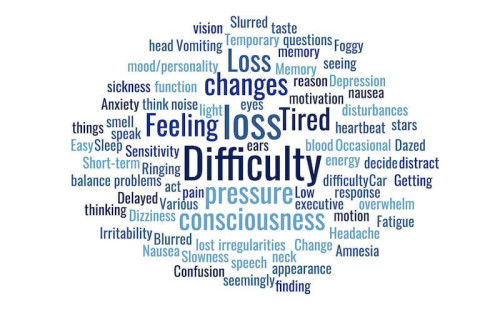Life After Brain Injury: Lift Your Spirit With These 5 Tips
Recovering from a brain injury is unlike any other rehab process. The brain is the most complex organ in the body, containing our talents, memories and personalities. A traumatic injury changes you in many ways. How can you regain your old life after the rehab stage? Follow these five steps to lift your spirits and rediscover your former self.
1. Recover Through Music
Music affects our moods and mental states in many ways, but did you know it can also heal brain damage? Thanks to advancements in brain imaging technology and neuroscience, more evidence is emerging that music assists patients in recovering from brain injuries. It’s not a definitive cure, but it can have remarkable effects.
A 2014 systematic review conducted by Finnish researchers found that music therapy helps patients regulate their motor functions, recover from speech disorders, mitigate behavioral disorders and improve concentration.
Proper evaluation depends on the patient’s state of consciousness, as only people capable of verbal or motor responses can provide feedback. Based on feedback, neuroscientists have defined multiple categories of neurological music therapy that focus on different aspects of the recovery process:
- Musical sensory orientation training: sustained attention and perception of music
- Musical neglect training: auditory perception of different times, rhythms and tempos
- Musical attention control training: engaging selective attention to music while performing other exercises
- Musical mnemonics training: recalling sounds and lyrics
- Associate mood and memory training: accessing the patient’s mood and memory network by inducing a positive emotional state
- Musical executive function training: exercises in musical composition and improvisation
- Music psychotherapy counseling: guided music listening and roleplaying to improve psychosocial functioning
{source}<iframe sandbox="allow-popups allow-scripts allow-modals allow-forms allow-same-origin" style="width:120px;height:240px;" marginwidth="0" marginheight="0" scrolling="no" frameborder="0" src="//ws-na.amazon-adsystem.com/widgets/q?ServiceVersion=20070822&OneJS=1&Operation=GetAdHtml&MarketPlace=US&source=ss&ref=as_ss_li_til&ad_type=product_link&tracking_id=behealthyandmore-20&language=en_US&marketplace=amazon®ion=US&placement=193612842X&asins=193612842X&linkId=484538312d3509b22c7db076a29c4d18&show_border=true&link_opens_in_new_window=true"></iframe>{/source}
The lingering effects of TBIs vary widely, so a multipurpose recovery tool like music is crucial for neurological health care. It’s still not clear what kind of music heals the brain most effectively, but some genres have the most powerful short-term effects on moods and behaviors:
- Classical music: Listening to classical music enhances problem-solving skills, especially involving shapes and puzzles. It has also been found to help students concentrate and retain information when studying.
- Ambient sounds: The soothing sounds of nature improve moods and cognitive abilities. However, they have to be specific sounds. Animal noises are distracting, while rain and waterfalls have the intended effects.
- Film and video game scores: Instrumental tracks from films and video games make the most boring tasks feel exciting, boosting concentration and productivity.
- 50-80 BPM music: Music within 50-80 beats per minute stimulates creativity and memory. Cognitive behavioral therapists call it alpha music.
- Your favorite tracks: Everyone has different musical tastes. Tracks you enjoy will improve your mood and productivity. The only exceptions are fast-paced songs with bold lyrics that might cause distractions.
The recent discoveries about music therapy have a clear underlying message: Music that heals your brain is whatever music you enjoy. Musical tastes are reflections of people’s personalities and experiences. It opens up a world of treatment methods you should explore while recovering from your brain injury.
2. Get Active Again
Exercise is a crucial component of recovering from a brain injury. If the injury results in permanent physical impairment, low-impact mindfulness activities such as yoga and tai chi are the most effective forms of exercise. For example, former Olympic snowboarder Kevin Pearce started the LoveYourBrain yoga initiative after suffering a career-ending TBI.
Moderate levels of aerobic activity can also assist in brain recovery. A 2015 study from the Archives of Physical Medicine and Rehabilitation found that patients with mild brain injuries saw improvements in brain cognition from three 30-minute training sessions per week.
Regardless of the type of exercise, the important thing is that you get moving. Staying sedentary will keep your spirits low. Exercising will release feel-good endorphins that ease your pain and improve your mood. It would help if you reclaimed an active lifestyle to get your energy and confidence back.
If you plan on returning to work or amping up your productivity in the workplace, know you have options. Don’t feel pressured to return to work before you’re ready, and look into workers’ compensation options at your place of employment.
3. Change Your Diet
Your eating habits are just as important as your exercise habits. A balanced diet means your brain is getting the nutrients it needs to reach its full cognitive potential. TBI specialists at Brainline suggest eating small meals every few hours with a healthy dose of the following foods:
- Protein from lean meat, fish and eggs
- Omega-3 fatty acids from avocados, seeds and nuts
- Unprocessed carbohydrates in whole grains, fruits and vegetables
Fatty acids are particularly effective for brain recovery, improving spatial cognitive awareness and brain cell restoration. You could load up on fish and seeds or take a supplement to simplify your diet. Watch out for any food that causes inflammation or digestive problems. Dairy, high-sugar food and alcohol are the most common suspects.
4. Grow Your Social Circle
Every successful recovery story has one thing in common: a supportive environment. The patient’s family, friends and medical professionals must provide constant emotional support to maintain morale. Grow your social circle if you feel you need more help. There are many discussion groups for trauma survivors on social media and health care websites.
A huge step in overcoming trauma is openly discussing its effects, whether online or in person. Take advantage of these support resources, tell your story and connect with other survivors.
5. Pick up a New Hobby
Starting a new hobby is a constructive way to recover from a brain injury, or any tragedy for that matter. It takes your mind off the trauma and gives you newfound confidence. Choose a mentally stimulating activity you’ve always wanted to learn, such as a sport, trade or field of study. You might have some limitations due to your injury, but you must prove to yourself that you can be independent.
Regaining agency is the ultimate goal of TBI rehabilitation. You can only hope to achieve that by challenging your brain with new activities. Progress might be slow, but every day of efficient action brings you another step closer to reclaiming your freedom.
Your Injury Doesn’t Define You
Recovering from a brain injury is a long, laborious process. There’s no getting around it. However, you can accelerate your recovery by listening to music, getting active, adjusting your diet, growing your social circle and starting a new hobby. These stimulating activities will show that your injury doesn’t define you. Your personality and memories are still there. You just have to work harder to unlock them.
When you subscribe to the blog, we will send you an e-mail when there are new updates on the site so you wouldn't miss them.









































